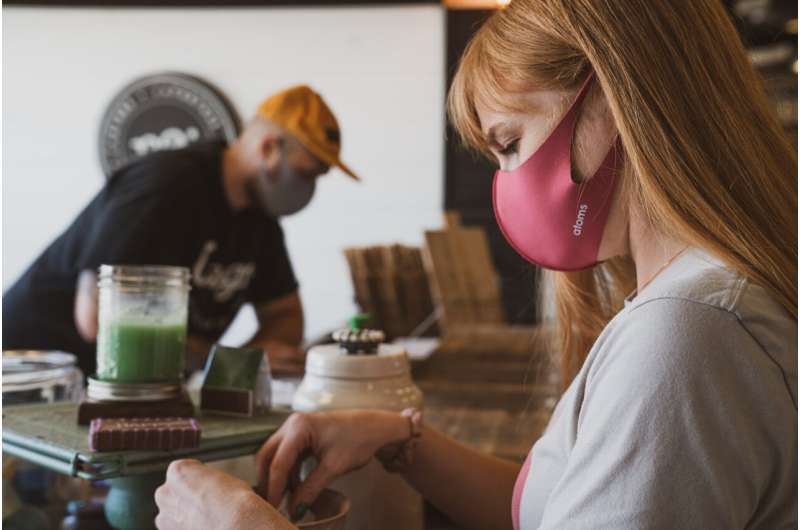Pubs and coffee shops must capitalize on flexible workers' increased desire for work and social balance

A new study by the Business School (formerly Cass), City, University of London and Goldsmiths, University of London has found that flexible workers increasingly value 'third space' environments—pubs, coffee shops, bars—as they work remotely.
This research finds that venues that strike a balance between a feeling of home and work are best received, with many third places not meeting the requirements of customer-workers. For example, they do not have a reliable Wi-Fi connection, available plugs, or back-supporting chairs, meaning customer-workers won't visit regularly.
More than a quarter of the UK workforce are now considered 'flexible workers," a trend accelerated by the COVID-19 pandemic. This has fueled the number of customer-workers—customers who perform work-related tasks and activities in commercial places not primarily intended for work—for those who do not wish or are unable to work from home or do not have access to an office space. This has resulted in the creation of popular social media hashtags #pubdesking or #workfrombars.
Dr. Laetitia Mimoun and Dr. Adele Gruen visited 36 different places, including coffee houses, pubs, hotel bars, churches, museums, libraries, and train stations and interviewed their managers and customers who regularly frequent third places. They found that these spaces offer:
- better productivity and greater motivation than home working
- ensure better relationship between staff and clients
- play a societal role by providing isolated/lonely workers with access to the health and wellbeing benefits of socializing, even possibly increasing the likelihood of romantic encounters
- provide opportunities for flexible workers to accumulate symbolic and identity benefits.
The study recommends that, dependent on their locality and current clientele, venues make changes to manage these customers and their potential value.
These recommendations include:
- avoiding rules and signs which can deter customers and stress out staff, such as "no laptop between 12 and 2 pm"
- using environmental cues such as placing plugs and booths in usually empty or calm areas to attract customer-workers and place covers on tables at lunchtime to show that the atmosphere has changed
- using long tables and booths to facilitate sociality between customer-workers
- bringing a feeling of home to the workplace with the offer of food and coffee and special daily offers.
Lead researcher Dr. Laetitia Mimoun, lecturer in marketing at the Business School, believes now is the time for owners and proprietors to look at their business model if they want to capitalize on the number of customer-workers looking for alternative workspaces.
"Customer-workers can be enormously valuable for third places if managed successfully. This study shows that people do have fatigue from working at home but enjoy the social aspects flexible working can offer.
"In the hustle and bustle of the cosmopolitan City, workers are able to find the identity that they have been unable to find in an emptier work office or uninspiring home workspace.
"Practitioners and customer-workers can both benefit from the creation of these spaces, but now is the time for owners to act if they want to catch these new customers."
"Customer Work Practices and the Productive Third Place," by Dr. Laetitia Mimoun, lecturer in marketing at the Business School (formerly Cass) and Dr. Adèle Gruen, Institute of Management Studies, Goldsmiths, University of London is published in the Journal of Service Research.
More information: Laetitia Mimoun et al, Customer Work Practices and the Productive Third Place, Journal of Service Research (2021). DOI: 10.1177/10946705211014278
Journal information: Journal of Service Research
Provided by City University London





















